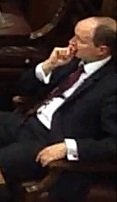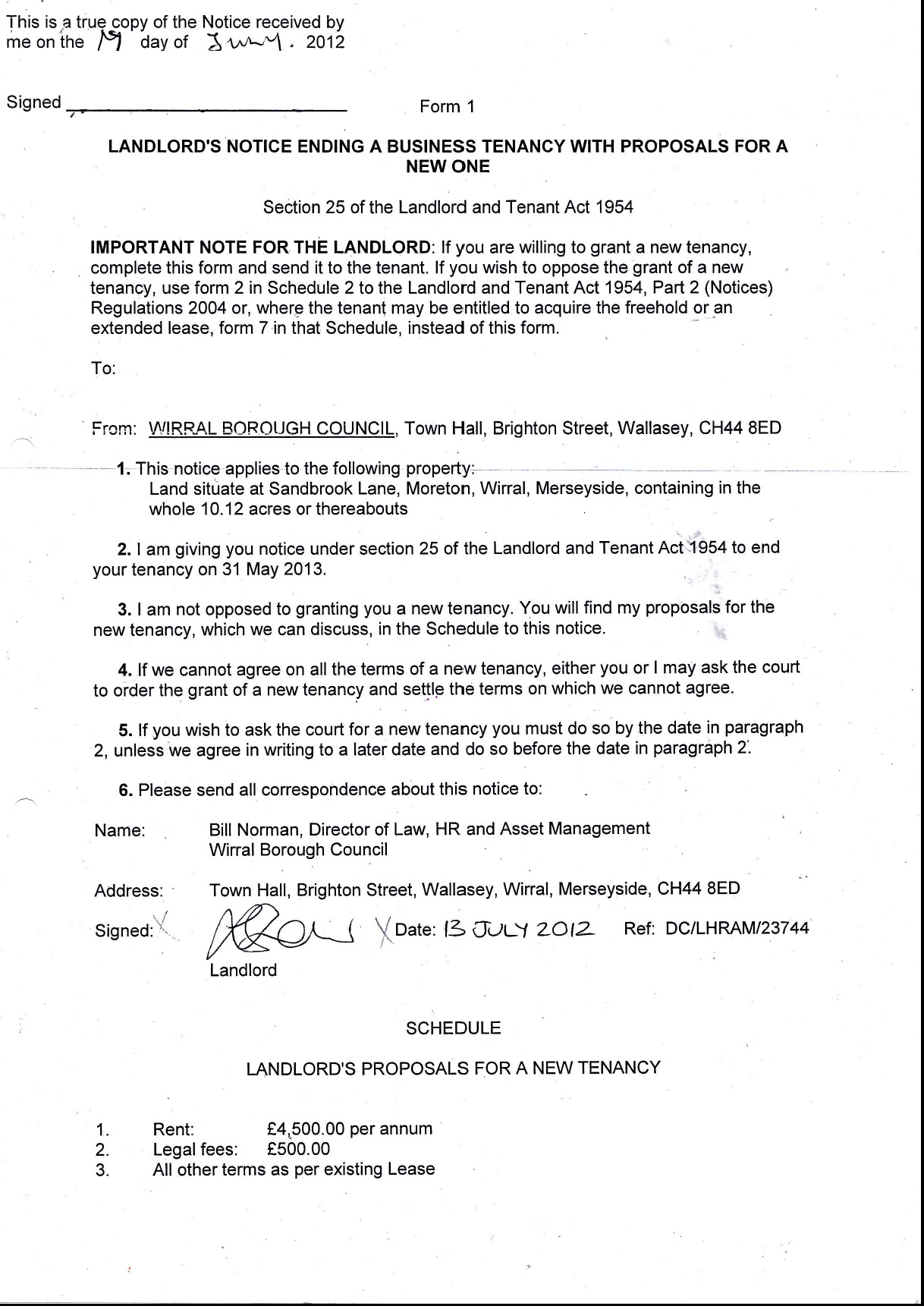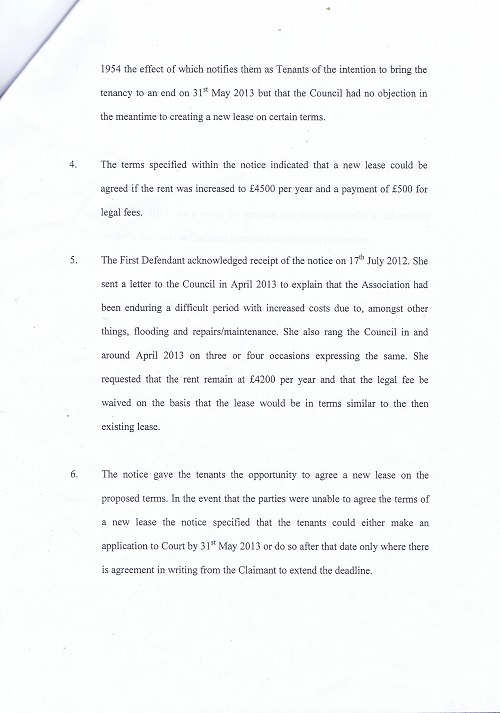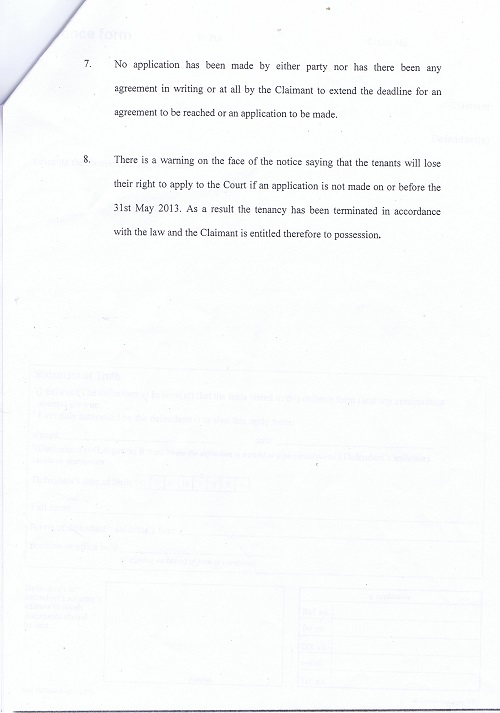Did officers breach Wirral Council’s constitution when they sent out the eviction notice for Fernbank Farm?
This is the story about what happened behind the scenes when the tenants of Fernbank Farm were sent an eviction notice in the July of 2012. However before this tale starts I need to explain about some of the people involved.

The person above is Bill Norman. He was the Council’s Director of Law, HR (which stands for human resources) and Asset Management. On the 27th June 2012 he was suspended from work because of how the Colas contract was awarded, however it is important to point out that in September councillors found there was “no case to answer” with regards to wrongdoing on Bill Norman’s part. By this time his post had been made redundant so he signed a compromise contract and left the employment of Wirral Council and got a golden goodbye of £151,416 (comprising of £112,848 termination payment, £28,568 redundancy payment, £5,000 legal costs and £5,000 legal costs direct to Bill Norman). This brings us now to the next person.

Surjit Tour is the person on the left of this photo. During the period Bill Norman was suspended, (that is from 27th June 2012 onwards) he was Acting Director of Law, Human Resources and Asset Management.
On Friday 13th July 2012 an eviction notice was signed and so was a letter accompanying the eviction notice. The letter and two copies of each eviction notice were sent out to each tenant with a request that the second copy of the eviction notice was returned to Wirral Council.
The letter used is below and below that page one of the eviction notice (you can click on it for a more high resolution version). I have erased from both documents the home address of the tenant it went to, the name of which tenant it went to and the signature of the tenant from the copy of the eviction notice returned.

Letter accompanying eviction notice
Wirral Council has a constitution which determines how decisions are made and whether they’re made by officers or councillors. The detail of this was determined by a very dull bit of Wirral Council’s constitution at the time called Schedule 4: Scheme of Delegation to Officers.
Under section 38 it details the responsibilities of the Director of Law, HR and Asset Management.
“The Director of Law, HR and Asset Management is authorised,
….
In respect of Property Management functions:
…
(12) Authorise the grant and renewal of leases, tenancies and agreements of land and premises at current market rentals subject (where appropriate) to the receipt of satisfactory references and planning consent and (as appropriate) the termination thereof.
…
(14) Approve the review of rents reserved by existing leases and tenancy agreements of Council land and property at current market rental levels.
…
In respect of trading standards, environmental health and related functions and responsibilities:
(46) Subject to paragraph (2) below, take any action under any relevant legislation (and related statutory instruments) including, where relevant (but not limited to), the service of notices
….
Relevant legislation under this paragraph shall include but is not limited to:
…
Landlord and Tenant Acts 1954, 1985 and 1987″
Now obviously Bill Norman couldn’t authorise the renewal of the lease or approve an increase in rent or agree to an eviction notice being served because he was suspended so he would have hardly been given a look at this before it was sent out!
Section 14 deals with this eventuality (note the Director of Law, HR and Asset Management is one of the officers referred to in paragraph 2):
“In the event of a Chief Officer referred to in paragraph 2 not being available for whatever reason, his/her Deputy (or, where there is no officer designated as such, the next most appropriate senior officer of the department) shall be authorised to implement approved delegated arrangements.”
Now as Acting Head of Law, HR and Asset Management while Bill Norman was suspended, Surjit Tour was deputising for Bill Norman during his suspension. However Surjit Tour’s signature does not appear on the letter or the eviction notice.
Section 3(a) states
“3. (a) Unless otherwise provided for within this scheme every officer listed in paragraph 2, may authorise officers in his/her department/service area to exercise on his/her behalf, functions delegated to him/her. Any decisions taken under this authority shall remain the responsibility of the relevant officer named in paragraph 2 above and must be taken in the name of that officer, who shall
remain accountable and responsible for such decisions.”
However Bill Norman couldn’t authorise officers in his department to exercise functions on his behalf as he was suspended! However the letter went out in his name. Bill Norman’s name was at the top right of the letter and the person signing it had below their name “Director of Law, HR and Asset Management”.
Here’s a comparison between Surjit Tour’s signature (below) and the signature on the eviction notice.

Here’s the signature used on the letter (again it wasn’t Surjit Tour’s):

So to conclude, the letter and eviction notice about the Fernbank Farm lease should’ve both been signed by the Acting Director of Law, HR and Asset Management (but weren’t). Instead they both went out in the name of Bill Norman (who was suspended). Bill Norman can’t have seen the letter and eviction notice before it went out, therefore how could he have authorised the officers that did sign the letter and eviction notice to do this on his behalf? If the signatures had been on someone else’s behalf pp would have been put before the signature to show that they were signing on behalf of someone else. This didn’t happen.
If Surjit Tour agreed to other officers signing the eviction notice and letter on his behalf (instead of signing them himself), then he didn’t have the authority under the constitution to do so as he was only Acting Director of Law, HR and Asset Management.
I think the most likely eventuality is that junior officers, who weren’t authorised under the constitution to make such decisions, signed the letter and eviction notice because Bill Norman was suspended and therefore unavailable. Surjit Tour should’ve been asked to do it, but if he had been asked, then why wouldn’t his signature be on the documentation? Therefore this seems to have been done without his knowledge.
So what are your views on this? Did junior officers sign off on something and make an unconstitutional decision? Is this maladministration? If the decision wasn’t properly made in the first place but Wirral Council went to court and got a possession order, what should happen next? Is this what Wirral Council mean when in a later letter dated 14th March 2014 they state “I do not believe the authority intentionally used the wrong letter in July 2012.”?
If you click on any of the buttons below, you’ll be doing me a favour by sharing this article with other people.



